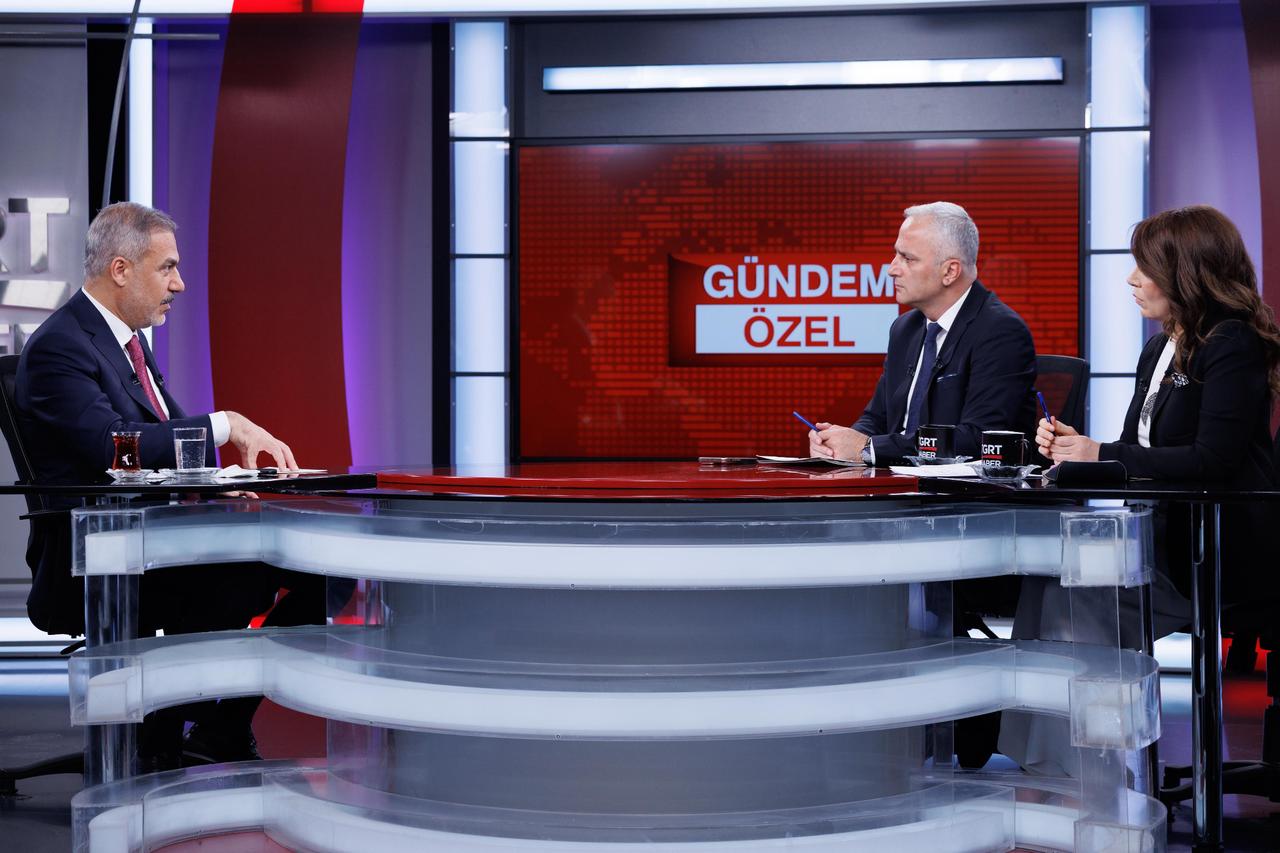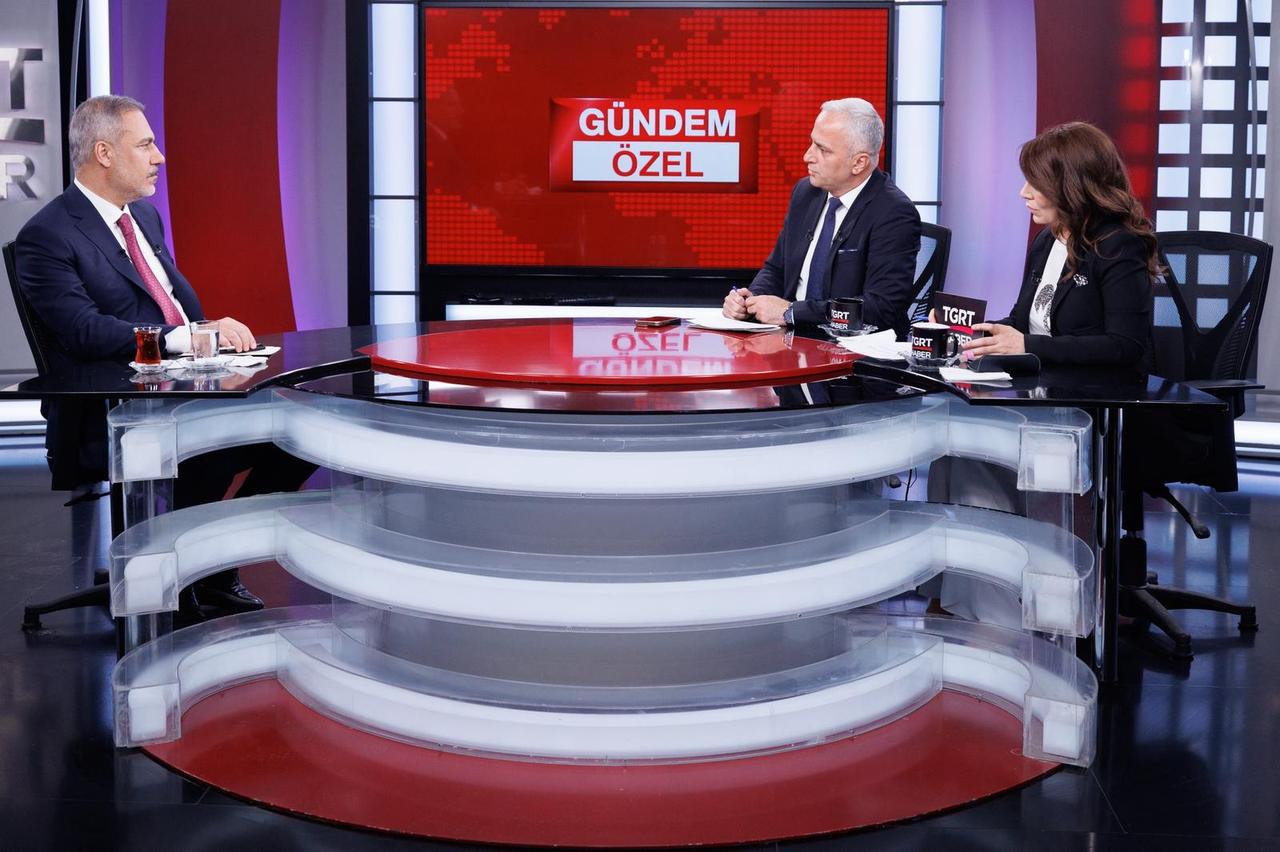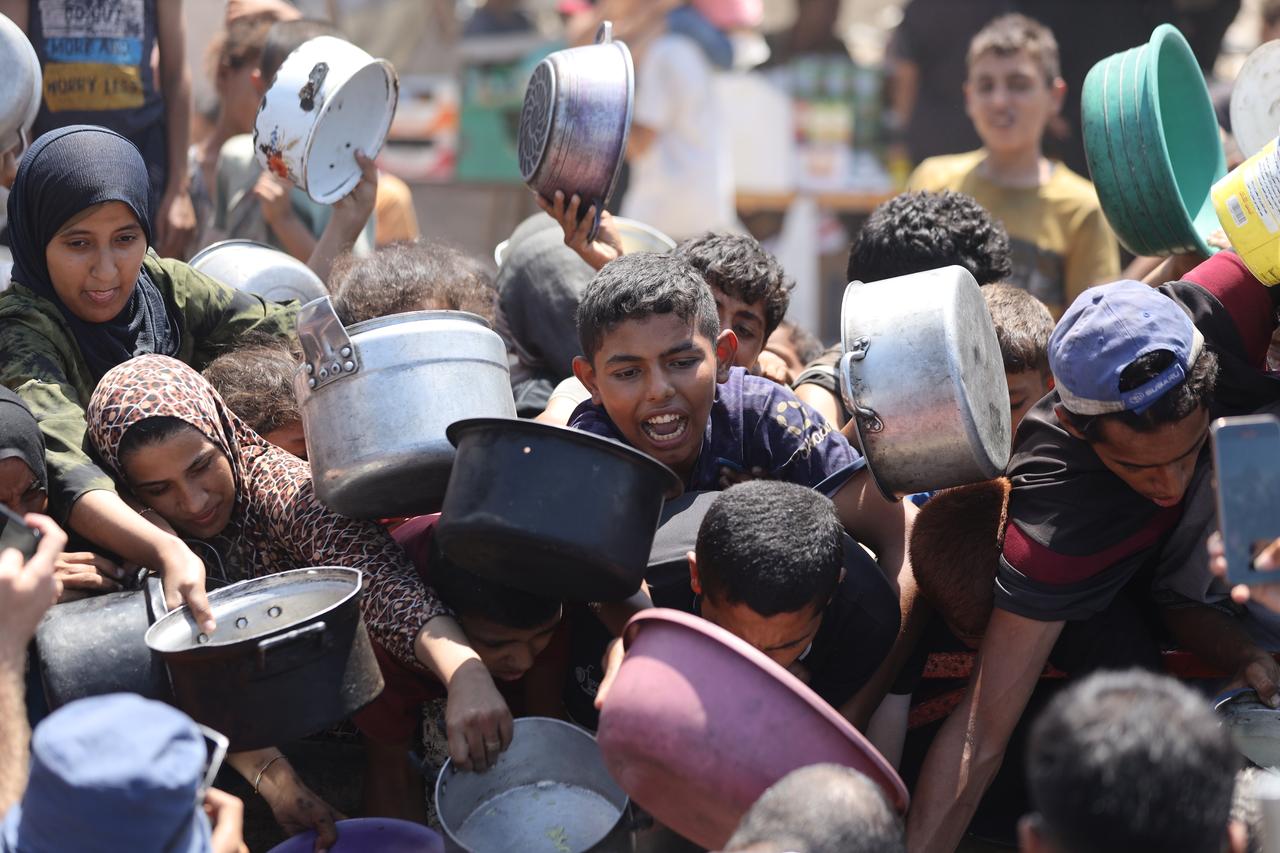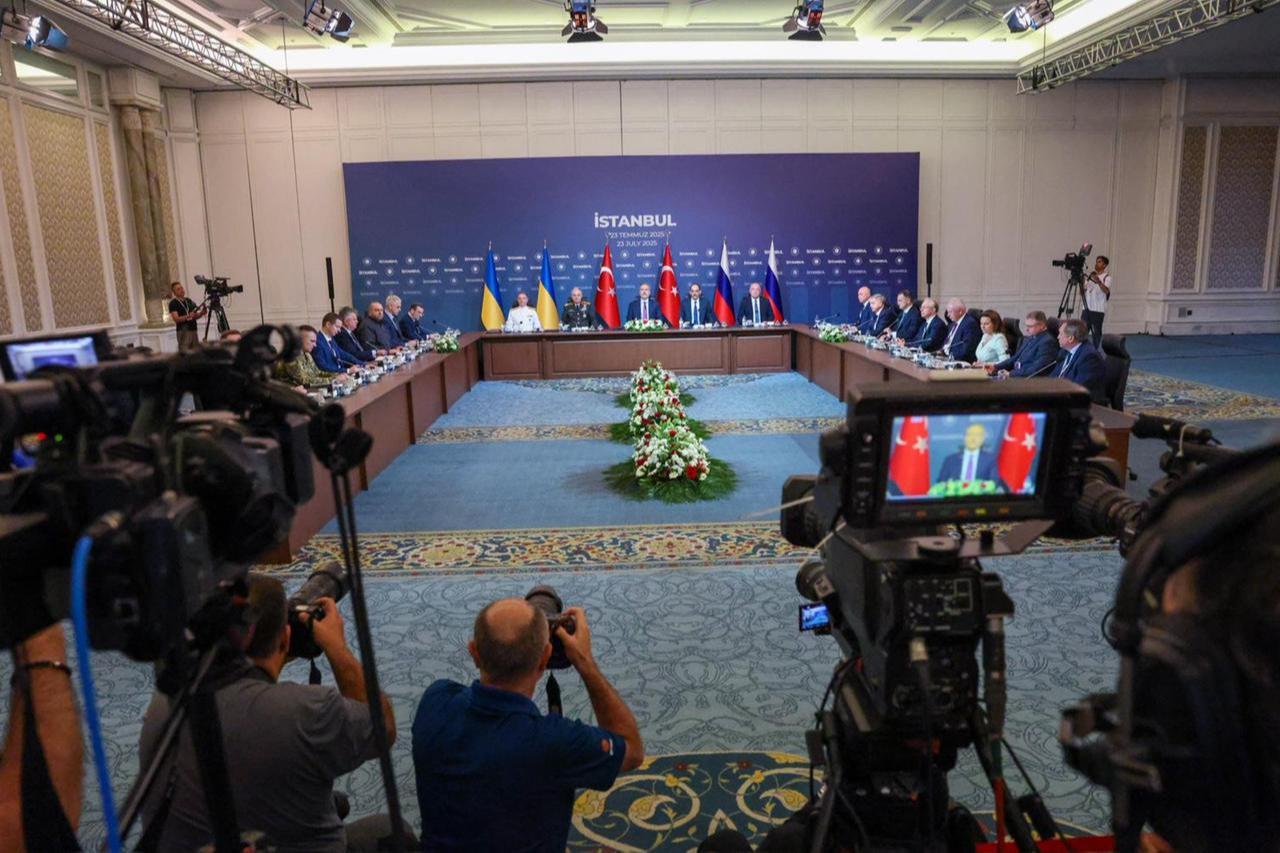
Turkish Foreign Minister Hakan Fidan on Thursday evening said the reality of genocide in Gaza has been recognized by the world, but Israeli Prime Minister Benjamin Netanyahu is “trying to cover it up.”
“There is a reality recognized by the world as genocide. What this man [Netanyahu] is trying to do is nothing other than cover up his own genocide,” Fidan said during a live broadcast on Turkish news outlet TGRT Haber.
Fidan discussed regional and global issues, including Syria, the meaning of President Recep Tayyip Erdogan’s “if the sword leaves its sheath” warning, the future of the Palestine issue, and the consequences of the collapse of the international system.
“The Palestine issue has become not just our wound but a bleeding wound for the world. The matter of Palestinian lands is not an event occurring anywhere else in the world. It is a point that requires serious thought and scrutiny,” he said.
“This issue did not begin today. It emerged after World War I and gained momentum after World War II. It reached this point following the Jewish illusion established after Hitler’s genocide,” he added.
Last week, the U.N.-backed Integrated Food Security Phase Classification confirmed famine in Gaza. Israel’s military campaign has killed nearly 63,000 Palestinians since October 2023, devastating the enclave.

Stressing a shift in U.S. policy, Fidan said Washington has not been “openly defending” Tel Aviv “anymore.” He added that Israel’s brutality in Gaza shows the Netanyahu administration does not care about humanitarian values.
Fidan criticized the United States for failing to restrain Israel. “It is clear that the U.S. is allied with a country that flagrantly violates every principle it has declared to the world. American policy at this point should question how unconditionally complicit it will be in inhumane thinking. The Netanyahu government does not recognize any moral or humanitarian value,” he said.
On Syria, Fidan explained that Türkiye has focused on smaller issues first and larger ones second. He emphasized that Israel’s expansionist policy in Syria is unacceptable.

Israeli warplanes struck several sites near al-Kiswah in the Damascus countryside late Wednesday, one day after earlier airstrikes on the town killed six Syrian soldiers. The Israeli army also carried out incursions into the Quneitra countryside despite international calls to halt violations of Syria’s sovereignty.
Following the fall of the Bashar al-Assad regime last December, Israel has launched hundreds of strikes on Syrian military sites and assets, including fighter jets, missile systems, and air defense installations.
Israel also expanded its occupation of the Syrian Golan Heights by seizing the demilitarized buffer zone, violating a 1974 disengagement agreement with Syria.
On Azerbaijan-Armenia relations, Fidan said, “A series of agreements reached between Armenia and Azerbaijan, along with the agreement between Azerbaijan and the U.S., created a very positive picture for the region. This matter progressed with consultation from our Azerbaijani brothers.”
Regarding the Zangezur Corridor, he said, “The parties will negotiate among themselves on who will operate it and what will happen.”
Early August, Azerbaijani President Ilham Aliyev and Armenian Prime Minister Nikol Pashinyan signed a joint declaration at the White House, hosted by U.S. President Donald Trump.
Since 1991, tensions have persisted after Armenian forces seized Karabakh and seven surrounding regions internationally recognized as part of Azerbaijan. In a 44-day conflict in late 2020, Azerbaijan reclaimed most of the territory, attaining full sovereignty over Karabakh last September through what it called an anti-terrorist operation.

On Russia-Ukraine negotiations, Fidan explained Türkiye’s absence in recent talks in Alaska and Washington: “Trump met with the parties to the war. We should not have been in Alaska or Washington. We established the negotiation table in Istanbul. We are not a party to the war, so we do not need to be present in those two settings.”
He emphasized Türkiye’s key role in facilitating peace: “Türkiye is a critical actor. Developments occurred during the rounds of Istanbul negotiations, and we later saw these issues brought up in Alaska. Are there problems? Yes. Previously, there were demands to take full administrative control over four provinces.”
Moscow and Kyiv held a third round of renewed peace talks on July 23 in Istanbul, where Ukraine proposed a summit between the two presidents before the end of August. The sides also agreed to continue prisoner exchanges. The first two rounds, on May 16 and June 2, had also taken place in Istanbul, reviving negotiations that had stalled since March 2022.